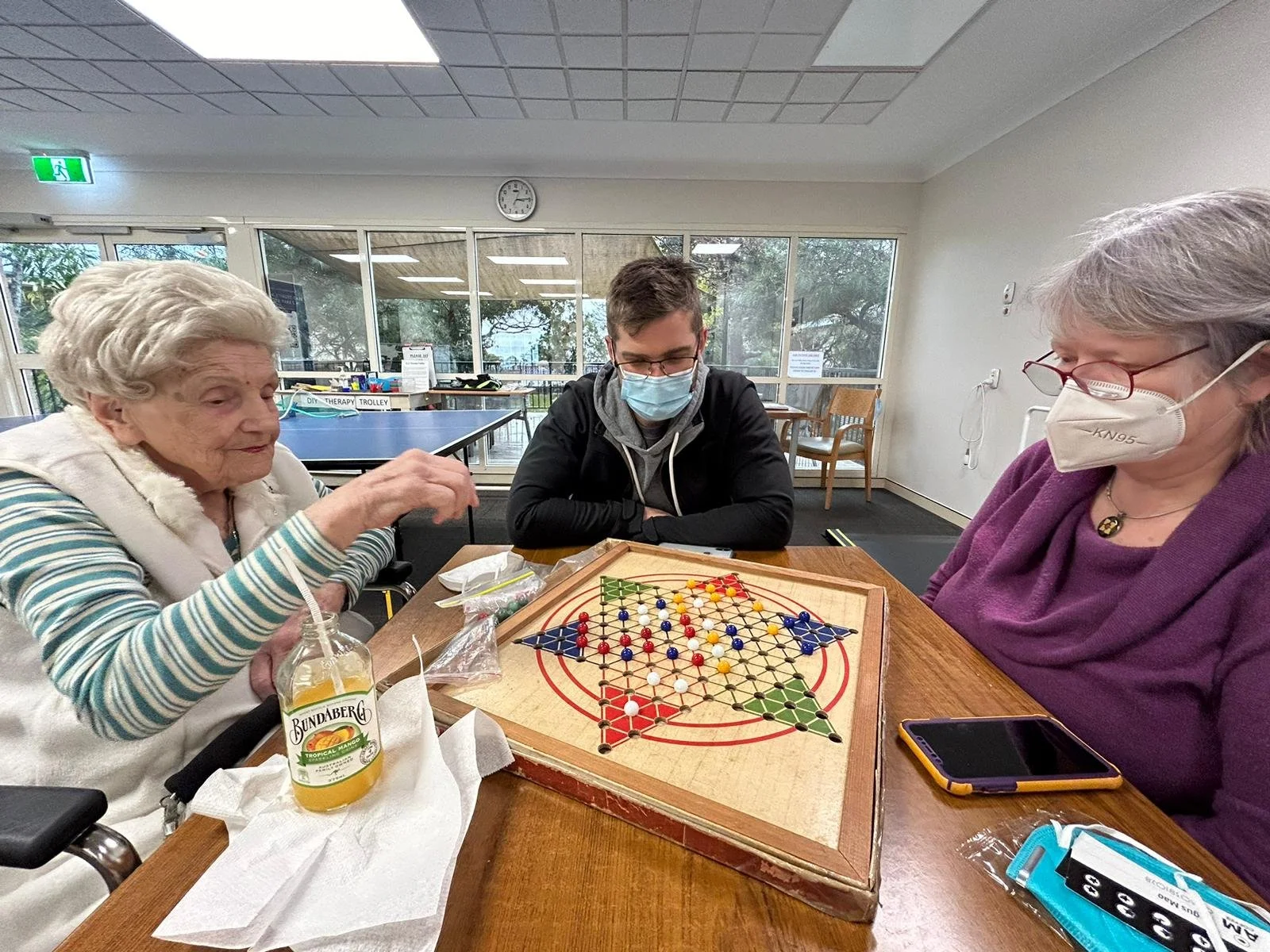
Group supervision
Some thoughts and resources.
If your browser supports WebGL (a JavaScript API that renders interactive graphics within a compatible web browser) I hope you are enjoying the visuals.
My journey.
I have lost count of the number of workshops I have attended on group work, group dynamics, solving problems with groups, and so on.
It seemed that groups were problems to be solved.
In recent years (in throwing out many of the books I had collected in this area), I noted a subtle shift in the tenor of the texts. There were more addressing the discussion of groups from the perspective of opportunity than of problem. This was echoed in Michael Paterson’s words (2023 Workshop in Sydney) where he noted that the dynamics could (and perhaps should) well be seen as an aid in group supervision rather than a hindrance. This led me to consider groups for supervision as an opportunity to be embraced rather than as a problem to be solved. It paralleled my experience in education.
A short essay prepared for a unit in my Graduate Certificate in Professional Supervision set me up to see my prejudices. It began a journey of preparing to supervise groups and to embrace the fear as excitement, and my past learning as resource. (I wrote a response to myself which can be found here.)

The welcome mat, our agenda
“Agenda” does sound a bit like a plan for a business meeting (I am sure we all have enough of those!) So I wonder if a blueprint might be a useful metaphor. I think maybe not, as it carries the assumption of being a fixed plan to meet a clear and fixed outcome.
So here is my metaphor:
A welcome mat and a brief introduction to the place we are entering.
I think it makes sense for me to do that as the person who has invited you in to this space. I will want to welcome you so that what may have been my space becomes our space. And I will invite you to take a lead in exploring the space, with the group finding its way together through some time, with me seeking to guide, support, protect and encourage, as I hope I would if you were entering my physical space together.
I hope the metaphor works.
What this doesn’t need (but could include) is a chatting around the welcome mat and a long introduction of each of us – whether by the host or by each guest. I hope we will discover more of each other as we wander through.
And the other fixed part of the “agenda” is that we will step out past the welcome mat and head to our next things after just under an hour. I hope at that welcome mat event we will share a little more of what the visit has meant for us and what we are taking forward (or considering taking forward).
You get to keep your shoes on at my place. You can also choose a range of slippers of wear your own socks, or share your nudie feet. All feet are lovely here.
So, the course also asks me to provide a portfolio of information – it is not clear to me if this is simply for my assessment purposes or if it is a requirement for me to provide to you. To cover the latter and for interest if all that is needed is the former, I have compiled relevant material below. Contact me if you are interested.
Why the image of three (of my family members) playing Chinese Checkers? You will probably give me deeper insights than I can bring myself, but here are a few from me:
1. We will be engaged in something beyond ourselves, between ourselves, connecting ourselves and challenging ourselves;
2. We can see three of the four in the group – we are visible in our interactions and possibly in the responses of our consoeurs (and confrere). We would not be visible in a physically present group. We may be (whether mirrored or not) in our online group. (Will that make a difference?)
3. We can play competitively (to win) or collaboratively (to learn, to discover, to be subversive…)
4. It can look like a mess or it can be pretty;
5. Participants have a better sense of the game than mere observers, though may see things that participants miss;
6. And other things!
So what to read in preparation?
Probably not bothering to read this.
Possibly looking at other resources.
Certainly being yourself and being involved.
I am very pleased to be pondering the welcome mat meeting and its possibilities.
Of making many resources...
Of making many resources...
Wanting resources on groups and supervision?
Here are some that might be helpful.
The Benefits of Group Supervision and a Recommended Structure for Implementation
A Victorian Government Draft Agreement on Peer and Group Supervision.
It is, I think, interesting to note the assumptions of the modality being face to face from pre-2020 and this fading over the years since.
Here is my own (working document!) for individuals who wish to engage in Group Supervision (designed for a working group from one workplace).
Much material is written from a mono-professional perspective (predominantly by and for counsellors and psychologists). No doubt much is to be learned from that reflection on and for professional practice.
A more general overview is provided by the Scottish Social Services Council. (Though how limiting is this list of responsibilities:
Supervisees (and indeed the facilitator) should:
• be prepared to listen actively and share openly
• avoid taking the conversation off in directions that are not useful
• show respect towards others
• avoid dominating the discussion
• be mindful of their duties regarding confidentiality.)
Still, perhaps better to spell out than to assume!
